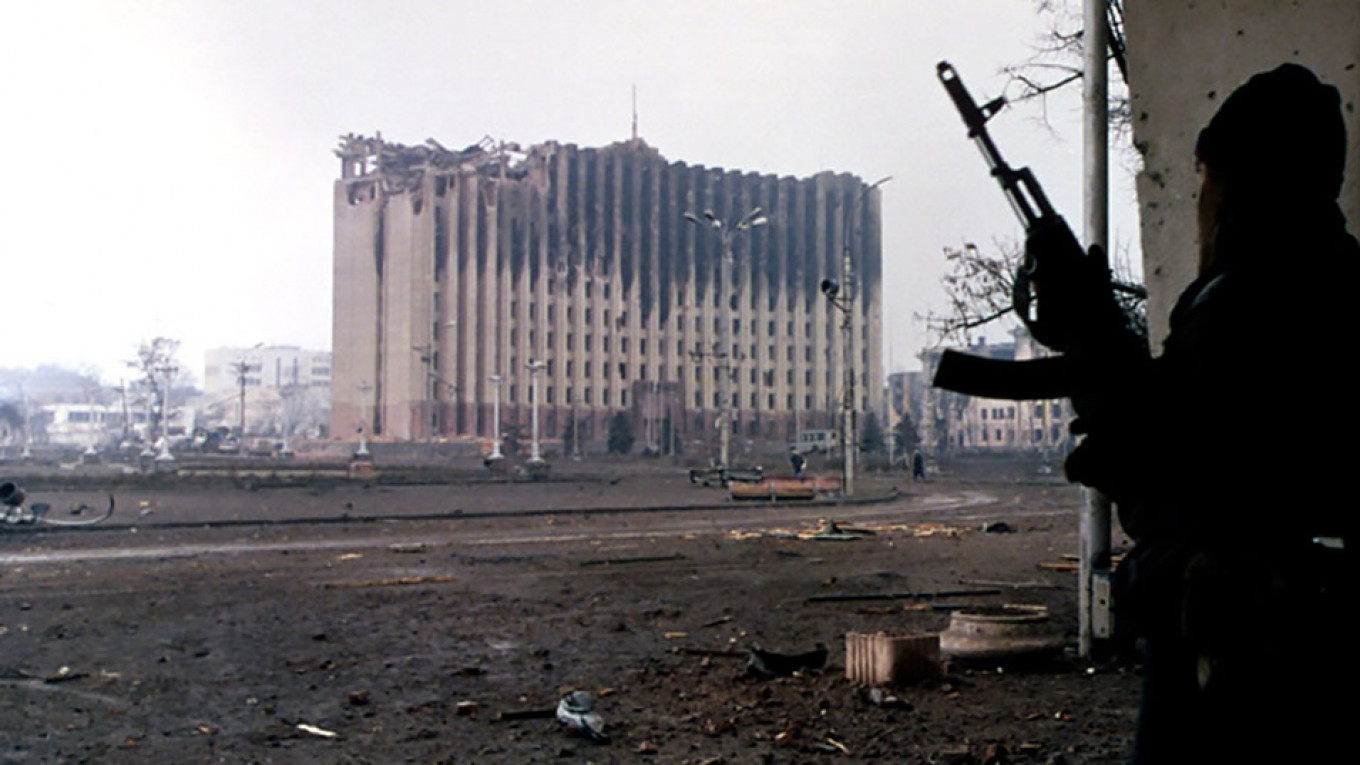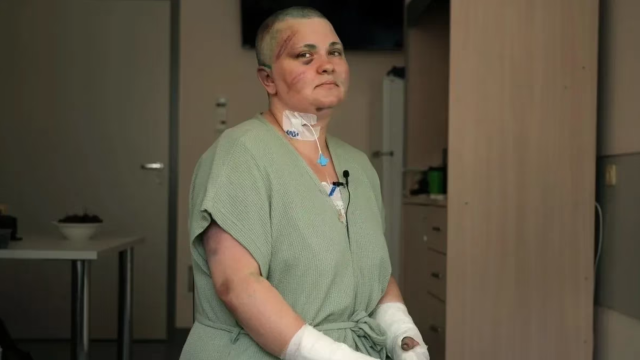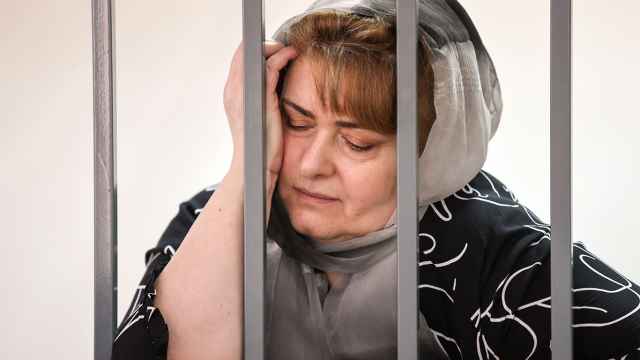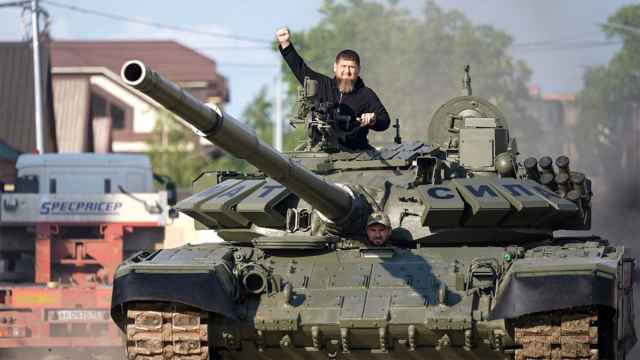Twenty-five years ago, the Russian government went to war in Chechnya. On Dec. 11, 1994, two weeks after a covert operation ended in fiasco, President Boris Yeltsin sent in the army to reconquer the dissident region.
The war that followed was the most disastrous and tragic episode of post-independence Russian history. Tens of thousands of civilians and thousands of young soldiers died in needless and horrific violence. Chechnya was devastated and Russia traumatized.
The indiscriminate bombing of civilians in Grozny in the New Year of 1995 (many of them ethnic Russian pensioners who were unable to leave the city) was a war crime which, had Russia been a smaller country, would have seen its perpetrators punished by international tribunals.
Few will be marking this anniversary. Russians, Westerners and even Chechens (in public at least) prefer not to remember. It does not fit in to a tidy narrative. The chief culprit for the invasion after all was not Vladimir Putin, but Yeltsin, a man still fondly remembered by Western leaders, many of whom cheered on his resort to military force.
Meanwhile the Russian liberals who cautioned against, such as Yegor Gaidar and Sergei Kovalyov, and who included several Kremlin advisers such as Emil Pain, were ignored and gradually marginalized.
The reasons the Kremlin, its Western friends and sundry commentators gave to justify the military intervention, were made of straw. Chechnya, led by the eccentric general Jokhar Dudayev, had first declared independence in September 1991.
Moscow was said to be “losing patience” with Dudayev. In fact, there was no more urgency to send in the army than there was for George W. Bush invading Iraq in 2003. This was a self-constructed urgency, built on a desire to boost Yeltsin’s flagging poll ratings.
Others argued that the government needed to halt a “domino effect” in which sundry other Russian regions would also break away. But that process had ended in February 1994 when the Kremlin cut a deal with the only other seriously rebellious Russian region, Tatarstan.
It was also pointed out that Dudayev’s was a corrupt and nasty regime. Here I could agree. Having made two visits to Chechnya earlier in 1994, I could confirm that it was a scary and lawless place. Dudayev had let mafiosi flourish while public servants went unpaid and ethnic Russians packed their bags to leave.
And yet Dudayev’s regime was crumbling. Few supported him and money was running out. A little more strategic patience and he would have been gone anyway. What is more, Chechnya the mafia state which elicited such outrage did not exist in isolation. While proclaiming independence, it actually still lived by the Russian ruble and direct flights went to Grozny every day from Russian cities. If you wanted to root out the black market economy and lawlessness of Chechnya, the best place to start was not Grozny, but Moscow.
What kept most Chechens from wishing to return to Russia sooner than they might have done was a deep sense of pride and a craving for respect. Under the Soviet system, this proud nation had been put at the bottom of the pile and suffered the horrific fate of mass deportation under Stalin in 1944. They were rehabilitated by Nikita Khrushchev but still faced discrimination right up until the end of the Soviet period. Dudayev restored their sense of honor, even if he emptied their wallets and made the streets unsafe.
In January 1994, I spoke to a wise Chechen writer opposed to Dudayev, Said-Khamzat Nunuev, who urged patience. “After suffering Tsarism and Communism, the people have not breathed the air of freedom enough,” Nunuev told me.
At the end of that year, The Moscow Times played an honorable role in trying to alert our readers to the looming catastrophe. Days before the war began, I reported from Grozny on how ordinary Chechens, faced with Russian military aggression, were once again rallying around Dudayev — the exact opposite effect to what the Kremlin intended.
Carlotta Gall later reported from Chechnya on the senseless savagery unleashed by that invasion — and after multiple trips to Chechnya between us together we wrote the first book on English on that war.
The editorial of Nov. 30 (written by Marc Champion) is sobering reading. It recommended patience: “True, restraint would bring Yeltsin neither glory nor an immediate solution to the Chechnya problem. It would, however, save a great many lives and reduce the risk of spreading instability throughout the North Caucasus region.”
But the Rubicon was crossed. The violence spread and eventually reached the rest of Russia.
As Andrei Piontkovsky later put it, “Moscow started by wanting to make Chechnya part of Russia, but has ended up with Russia becoming part of Chechnya.”
The Chechnya I briefly glimpsed before the war is also erased. I caught the last gasp of a place of irreverent Chechens who mocked all forms of authority, who were mostly secular, where women did not wear the veil and “freedom” was the ultimate prize.
That has been replaced by a fascistic place that has borrowed the worst elements of Saudi Islam and Putin’s Russia.
Putin was also made and defined by Chechnya. Beginning a second war, declaring victory and empowering the security forces to use all means necessary was the foundational narrative of his presidency. Putin’s transformation of Russia into a place where all is permitted to defend the security of the state was his ultimate answer to Yeltsin’s blunder of 1994.
A Message from The Moscow Times:
Dear readers,
We are facing unprecedented challenges. Russia's Prosecutor General's Office has designated The Moscow Times as an "undesirable" organization, criminalizing our work and putting our staff at risk of prosecution. This follows our earlier unjust labeling as a "foreign agent."
These actions are direct attempts to silence independent journalism in Russia. The authorities claim our work "discredits the decisions of the Russian leadership." We see things differently: we strive to provide accurate, unbiased reporting on Russia.
We, the journalists of The Moscow Times, refuse to be silenced. But to continue our work, we need your help.
Your support, no matter how small, makes a world of difference. If you can, please support us monthly starting from just $2. It's quick to set up, and every contribution makes a significant impact.
By supporting The Moscow Times, you're defending open, independent journalism in the face of repression. Thank you for standing with us.
Remind me later.








